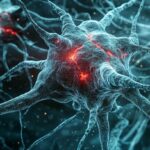Introduction to Cannabinoid Effects on Hormonal Balance and Fertility
The conversation surrounding cannabinoids, particularly cannabidiol (CBD) and tetrahydrocannabinol (THC), has evolved significantly in recent years. With the rise in advocacy for legalization and use among younger demographics, many are left wondering how these compounds affect hormonal balance and fertility. Understanding this relationship is crucial, especially as scientific research begins to paint a clearer picture. In this guide, we’re going to explore how cannabinoids interact with the endocrine system and what that means for reproductive health.
The Endocrine System and Reproductive Health
At its core, the endocrine system is a sophisticated orchestra of glands that produces and regulates hormones—essential messengers that guide numerous bodily functions. Among these, the hypothalamic-pituitary-gonadal (HPG) axis plays a starring role in fertility regulation, impacting both male and female reproductive health.
The HPG axis involves multiple players:
- Hypothalamus: Produces gonadotropin-releasing hormone (GnRH), initiating the reproductive hormone cascade.
- Pituitary Gland: Releases luteinizing hormone (LH) and follicle-stimulating hormone (FSH), which stimulate the gonads.
- Gonads: Testes and ovaries produce sex hormones, including testosterone and estrogen, vital for reproduction.
The balance of hormones generated through this axis is crucial for ovulation, sperm production, and overall reproductive health.
Cannabinoids and the Endocannabinoid System
Cannabinoids like THC and CBD impact the body’s endocannabinoid system (ECS). This complex system comprises receptors (CB1 and CB2), enzymes, and endocannabinoids, working in concert to regulate multiple physiological processes. Importantly, the ECS plays a role in managing reproductive functions.
When cannabinoids are consumed, they bind primarily to these receptors, influencing hormone levels and reproductive outcomes. THC, known for its psychoactive effects, tends to get the most attention, but CBD is also an important player, though its effects are less straightforward.
Impact on Male Fertility
Hormonal Imbalance
Research demonstrates that THC can disrupt critical hormonal pathways in men. It has been associated with lower serum testosterone levels and reductions in LH and FSH—hormones essential for healthy sperm production. In particular, even moderate consumption of marijuana can alter these levels, which are fundamental for male reproductive functionality.
Sperm Quality and Quantity
The repercussions of THC on sperm health cannot be overstated. Studies indicate that regular marijuana use can lead to significant reductions in sperm count, motility (the ability of sperm to swim effectively), and overall quality. In fact, users consuming just a single marijuana cigarette each week have experienced up to a 30% drop in sperm count, with the effects capable of lingering for up to three months post-use.
Moreover, THC’s impact on sperm function poses challenges for conception, potentially making it harder for couples trying to conceive.
Erectile Dysfunction
Chronic use of marijuana has also been linked to erectile dysfunction, creating additional roadblocks for male fertility. This connection is particularly concerning for men looking to start families or enhance reproductive health.
Impact on Female Fertility
Ovulation and Menstrual Cycle
For women, THC’s implications for fertility extend to the broader reproductive cycle. THC can disrupt the natural cycle, inhibiting the maturation of ovarian follicles and affecting ovulation. Women may experience irregular menstrual cycles and delayed ovulation—two factors that can severely hinder fertility efforts.
Egg Viability
THC exposure has been shown to negatively impact egg viability, which is crucial for conception. Several studies highlight that increased THC levels lead to decreased expressions of vital genes necessary for egg health, resulting in lower-quality embryos and higher infertility rates.
Long-Term Effects
The effects of cannabinoid use are not limited to adults; early-life exposure, especially during adolescence, raises concerns about long-term repercussions. Research suggests that THC can deplete ovarian follicles, with reductions up to 50%. This depletion can affect the number of healthy eggs available for future conception.
Influence on Hormonal Balance
Reproductive Hormones
Cannabinoids can disrupt levels of critical reproductive hormones in both genders. Chronic use may lead to imbalances, underscoring the importance of monitoring hormone levels for those who regularly consume cannabis products.
- Signs of imbalance may include irregular periods in women or decreased libido in men.
- Regular check-ups can help identify adverse effects early on.
Genetic Impact
The genetic implications of cannabinoid exposure merit attention, as research shows THC can alter the activity of numerous genes associated with reproductive health. Up to 62 gene expressions might be impacted, suggesting a complex interplay that demands further investigation.
Conclusion and Actionable Tips
The evidence strongly indicates that cannabinoid use—particularly THC—can adversely affect both male and female fertility by disrupting hormonal balance and the overall functioning of the endocrine system. Understanding these interactions is essential for individuals looking to maintain reproductive health. Here are some actionable steps to consider:
- Avoid Cannabis Use During Fertility Treatments: If you are planning to conceive or are undergoing treatment, ceasing cannabis use is advisable to minimize potential impacts on fertility.
- Monitor Hormone Levels: Regular check-ups can help identify any hormonal imbalances. Discuss with healthcare professionals if you are a regular user of cannabis products.
- Educate Adolescents: Raising awareness about the long-term impacts of THC on reproductive health among young people is vital. Early education can empower informed choices.
- Consult Healthcare Providers: For anyone considering cannabis use, consulting healthcare professionals is crucial, especially for those hoping to start a family, to discuss potential risks and benefits.
By comprehensively understanding how cannabinoids affect the endocrine system, individuals can make informed choices that align with their reproductive goals and overall health. As research on this topic continues to develop, staying informed and seeking the counsel of healthcare experts will be key to navigating the complexities of cannabinoid use and fertility for years to come.





















